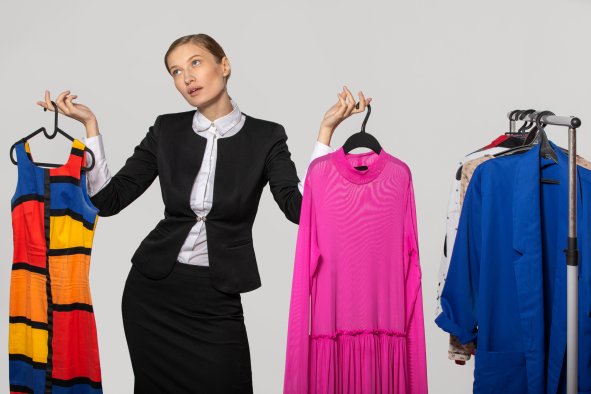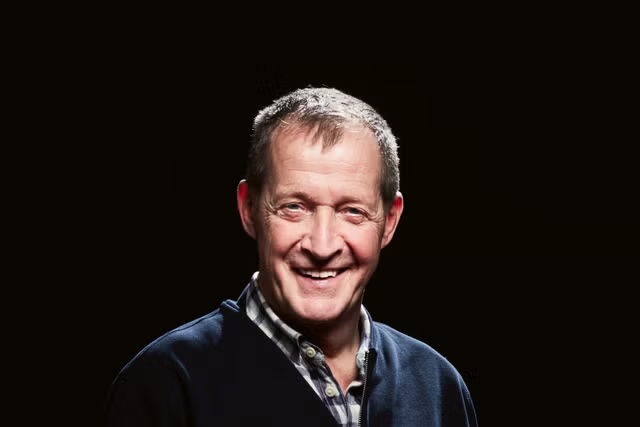Modern dating can be exhausting. Even with all the best apps and events, it's easy to find yourself at the end of the day still single and wondering why.
The answer might be deeper than the next niche dating app. Newsweek spoke with Dr. Judy Ho, licensed clinical and forensic neuropsychologist, tenured faculty at Pepperdine University and author of The New Rules of Attachment, to find out why chronic singleness still exists in a society that seems to be spoiled for choice.
A report by Pew Research Center revealed that about 3 in 10 U.S. adults are single—and that the youngest and oldest people in the surveyed demographic are the most likely to be single. For people in the single population who want a relationship, Dr. Ho offered suggestions and methods for functioning more successfully in the dating scene. But the big question must be answered first.
Why are you still single?
Dr. Ho said that there are several factors that tend to correlate with "prolonged singlehood."
Insecure attachment styles
Attachment styles are born from the way children respond to the stress of separation from their caregivers. Forming either a secure, anxious, avoidant or disorganized response, the child carries certain behaviors and attitudes toward relationships into adulthood.
Dr. Ho said that people with insecure attachment styles might have a harder time maintaining "quality" relationships. Fears of intimacy, the inability to trust or a propensity toward relational chaos can cause people with these attachment styles to struggle in forming romantic bonds.
Shaky self-esteem
It's hard to love another when you struggle to love and accept yourself. Dr. Ho said that one's struggles with self-esteem can prevent them from forming or deepening romantic relationships.
"People may doubt their worthiness of love, and struggle with vulnerability with others," she said. "This can lead to self-fulfilling prophecies and even self-sabotaging behaviors that lead relationships to end."
Past relationship trauma
It's clear that we carry our relational histories into our current relationships—whether from caregivers or even previous lovers. Dr. Ho said that varying forms of emotional, physical or sexual abuse in a previous relationship can make it difficult and potentially triggering to engage in new relationships.
Career and personal goals
Sometimes, love just takes a back seat to other priorities. People who find themselves still single may be—knowingly or unknowingly—prioritizing their career or personal goals over romance.
People may even prioritize other relationships over those that are romantic, like relationships with friends, children or colleagues.
Dr. Ho said there are certain mindsets that can contribute to a person's singlehood, as well. High or unrealistic expectations for partners—usually from the influence of the media—can prompt people to compare their imperfect romantic interests to shiny depictions of love online.
How can you break out of chronic singlehood?
Dr. Ho said one of the most important tasks to undertake in the face of unwanted singleness is self-reflection.
"Getting to know yourself better and being willing to work on yourself is important," she said. "You can't look to someone else to complete you—you have to feel complete yourself before being able to have healthy relationships with others."
Having a deep sense of your own "baggage" and personal triggers can ease the ill effects of insecure attachment or poor self-esteem.
And while single people who want love might be tempted to pick up the next dating app, there are other methods and mindset shifts to consider. Dr. Ho said she thinks it's important for people to date multiple people to understand what they want from a relationship.
"Not necessarily all at once," she said. "But definitely don't commit right away after one good date....It's important not to put so much stock into one good date. Think of all of this as an opportunity to gather more information rather than committing too quickly."
She advised that after each date, single people should take an "inventory" of the time they had: "What did you enjoy about the date, what did you like about the person...did you get any red flags that you sometimes don't heed because you're so excited about the prospect of the person?"
To find these multiple dates, Dr. Ho suggested community groups, volunteering or using friends as matchmakers to find people who share similar values. This, she said, is the most important thing to look for in a potential partner.
"Values are not items you can check off a to-do list, but rather the things you want to stand for and the ideals you want to live your life by," she said. "Someone who shares your values will understand most of all what's important to you, and also be able to help you cultivate meaningful activities and experience joy."
We've all been there
Sometimes, Dr. Ho said, singlehood is a choice—and we should respect that.
"But if you are looking for love and having a hard time, know that almost every human being in this world at some point in time struggled with similar thoughts," she said. "You will find someone who is a great fit for you if you attune yourself to what you truly want rather than what everyone else around you or society says you should want."
And while you wait for the right connection to click, there's no shame in taking yourself on a date, either.
"Get to know yourself better and make yourself as well-rounded as possible, so that when you find the person you want to be with, you'll feel great in your own skin," she said. "You won't be looking for them to validate you and provide you with happiness more so than you can provide that for yourself."
Disclaimer: The copyright of this article belongs to the original author. Reposting this article is solely for the purpose of information dissemination and does not constitute any investment advice. If there is any infringement, please contact us immediately. We will make corrections or deletions as necessary. Thank you.



